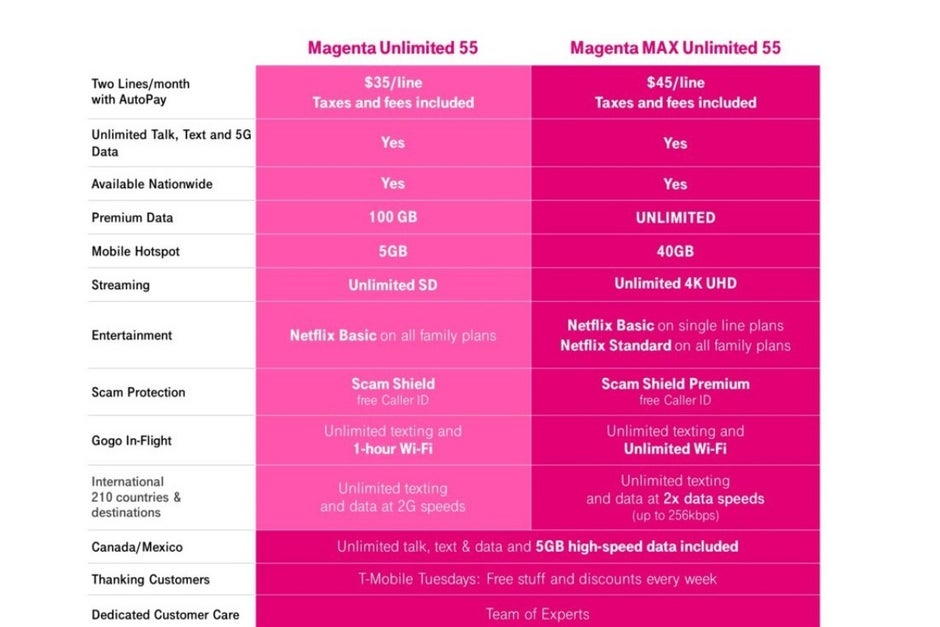T-Mobile is vastly and objectively superior to the competition from a number of different standpoints nowadays, but while Magenta’s 5G infrastructure advantage tends to capture the limelight and make headline after headline, its undeniable edge in terms of value for money may actually be the main reason why subscriber figures are growing at such a remarkable pace.
How much do you have to pay for four unlimited 55+ lines?
If you opt for the latter, your first line of “maxed-out” wireless service will set you back $65 a month (taxes and fees included), with the second one available for just 25 bucks more for a grand total of $90 (for a limited time), and both third and fourth lines costing $45 a month.
Meanwhile, one “regular” Magenta 55+ line is currently available for $50 a month, with the second line costing $20 on top of that (also for a limited time), and the third and fourth lines requiring monthly payments of $35 each. Finally, the entry-level Essentials 55+ plan remains restricted to no more than two lines per account at $40 and $55 a month for one and two lines respectively.
What do you get for your money?
That means you will never have to worry about so-called “prioritization”, which is basically throttling for people who consume a lot of data each month. We’re talking more than 100 gigs, which might sound like a reasonable limit… until you start binging old seasons of “Stranger Things” in 4K resolution.

Of course, the Magenta Unlimited 55 (or Magenta 55+) plan is not without its share of cool benefits, supporting unlimited SD streaming and unlimited talk, text, and 5G data while capping off at the aforementioned 100 gigs of max-speed data and only 5 gigs of 4G LTE mobile hotspot data (compared to a whopping 40GB for the Max 55+ tier).
Because we know it can be a little confusing to choose the best plan to fit your individual needs and preferences, you should rest assured keeping in mind that Verizon and AT&T simply have nothing in their lineups to rival T-Mobile’s value-packed options for senior consumers. In other words, there’s essentially no wrong choice to be made here.

